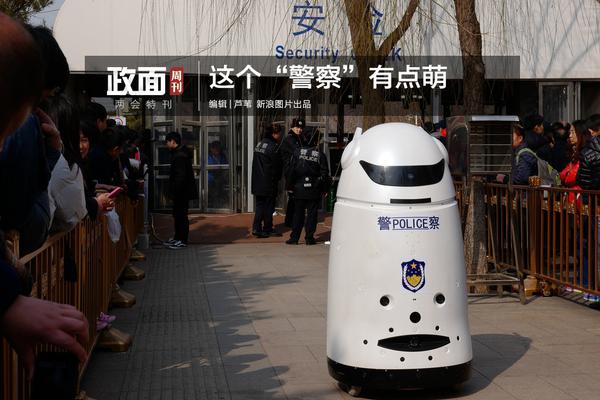
The five functional modules of the operating system are processor management, memory management, device management, file management and operation management. Processor management The most basic function of processor management is to process interrupt events. After configuring the operating system, various events can be processed.
The functions of the computer operating system include: processor management, memory management, device management, file management, job management and other functional modules. Processor management. The most basic function of processor management is to handle interrupt events. The processor can only detect interrupt events and generate interrupts and cannot process them.
Storage management is divided into several functions: storage allocation, storage sharing, storage protection, and storage expansion.Equipment management has the following functions: equipment allocation, equipment transmission control, and equipment independence. File management: file storage space management, directory management, file operation management, file protection.
The operating system should usually include the following five functional modules: (1) Processor management. When multiple programs are running at the same time, solve the problem of processor (cpu) time allocation. ( 2) Operation management. The program to complete an independent task and its required data constitute a task.
The function of the operating system is mainly reflected in the management of computer resources - microprocessors, memory, external devices, files and tasks. The operating system sets this management function into the corresponding program management module, and each management module is responsible for a certain function.That is, the five functions of the operating system.
The operating system has five functions: processor management: mainly controls and manages the work of the CPU. Storage management: mainly carry out memory allocation and management device management: mainly manage basic input and output device file management: responsible for the organization, storage, operation and protection of computer files, etc.

There are the following types of management systems: the management system of the finished product set. This kind of system is a stereotyped management system, which makes a small number of functional adjustments to the software through the parameter settings of the software.
Transaction Processing System (TPS): Operators and supervisors are used to input transactions, events, sort, list, merge updates, output detailed reports, lists and summaries, etc. Management Information System (MIS): Middle managers are used to input general transaction data and simple models to process routine reports.
Adgecal management system Academic management system is one of the most core management systems of the school, which is responsible for arranging and managing the school's teaching activities. It includes curriculum setting, teaching plan, teacher arrangement, examination management and other contents.
VMware vSphere: It is a virtualization management platform that can be used to manage virtual machines, storage and networks, etc. Nagios: It is an open source network monitoring system that can be used to monitor network devices, servers and applications, etc.
Financial subsystem: providing the function of financial management information; Decision support subsystem: make the logistics information system reach a higher level.
ERP management system brand Youyou, Jindie International Software, Wave Software, Dingjie Software, Zhenghang Software. Use friends.
1. System management refers to the information technology system that manages enterprises, and file management is one of the five major functions of the operating system.First, network management refers to the centralized management of resources on the network by network administrators through network management programs.
2. System Management regards organizational components as interrelated and interdependent systems, so it advocates applying the system concept to the management concept.
3. System management refers to the process of maintaining, managing and monitoring computer systems. As an important part of enterprise informatization construction, the importance of computer system management cannot be ignored.
Hearthstone arena deck Builder-APP, download it now, new users will receive a novice gift pack.
The five functional modules of the operating system are processor management, memory management, device management, file management and operation management. Processor management The most basic function of processor management is to process interrupt events. After configuring the operating system, various events can be processed.
The functions of the computer operating system include: processor management, memory management, device management, file management, job management and other functional modules. Processor management. The most basic function of processor management is to handle interrupt events. The processor can only detect interrupt events and generate interrupts and cannot process them.
Storage management is divided into several functions: storage allocation, storage sharing, storage protection, and storage expansion.Equipment management has the following functions: equipment allocation, equipment transmission control, and equipment independence. File management: file storage space management, directory management, file operation management, file protection.
The operating system should usually include the following five functional modules: (1) Processor management. When multiple programs are running at the same time, solve the problem of processor (cpu) time allocation. ( 2) Operation management. The program to complete an independent task and its required data constitute a task.
The function of the operating system is mainly reflected in the management of computer resources - microprocessors, memory, external devices, files and tasks. The operating system sets this management function into the corresponding program management module, and each management module is responsible for a certain function.That is, the five functions of the operating system.
The operating system has five functions: processor management: mainly controls and manages the work of the CPU. Storage management: mainly carry out memory allocation and management device management: mainly manage basic input and output device file management: responsible for the organization, storage, operation and protection of computer files, etc.

There are the following types of management systems: the management system of the finished product set. This kind of system is a stereotyped management system, which makes a small number of functional adjustments to the software through the parameter settings of the software.
Transaction Processing System (TPS): Operators and supervisors are used to input transactions, events, sort, list, merge updates, output detailed reports, lists and summaries, etc. Management Information System (MIS): Middle managers are used to input general transaction data and simple models to process routine reports.
Adgecal management system Academic management system is one of the most core management systems of the school, which is responsible for arranging and managing the school's teaching activities. It includes curriculum setting, teaching plan, teacher arrangement, examination management and other contents.
VMware vSphere: It is a virtualization management platform that can be used to manage virtual machines, storage and networks, etc. Nagios: It is an open source network monitoring system that can be used to monitor network devices, servers and applications, etc.
Financial subsystem: providing the function of financial management information; Decision support subsystem: make the logistics information system reach a higher level.
ERP management system brand Youyou, Jindie International Software, Wave Software, Dingjie Software, Zhenghang Software. Use friends.
1. System management refers to the information technology system that manages enterprises, and file management is one of the five major functions of the operating system.First, network management refers to the centralized management of resources on the network by network administrators through network management programs.
2. System Management regards organizational components as interrelated and interdependent systems, so it advocates applying the system concept to the management concept.
3. System management refers to the process of maintaining, managing and monitoring computer systems. As an important part of enterprise informatization construction, the importance of computer system management cannot be ignored.
UEFA Champions League live streaming free
author: 2025-01-10 19:44App to watch Champions League live free
author: 2025-01-10 19:06 DigiPlus fair value
DigiPlus fair value
591.53MB
Check PAGCOR online casino free 100
PAGCOR online casino free 100
592.87MB
Check Casino Plus GCash login
Casino Plus GCash login
639.73MB
Check Casino redeem
Casino redeem
755.24MB
Check UEFA TV
UEFA TV
925.47MB
Check Arena plus APK
Arena plus APK
992.45MB
Check UEFA Champions League live
UEFA Champions League live
957.33MB
Check UEFA EURO
UEFA EURO
986.18MB
Check Hearthstone arena class win rates reddit
Hearthstone arena class win rates reddit
184.64MB
Check UEFA European championship
UEFA European championship
369.68MB
Check Europa League app
Europa League app
775.36MB
Check Casino free 100 no deposit
Casino free 100 no deposit
364.51MB
Check Bingo Plus stock
Bingo Plus stock
371.22MB
Check Casino Plus free 100
Casino Plus free 100
459.41MB
Check Casino Plus login register
Casino Plus login register
364.34MB
Check bingo plus update today
bingo plus update today
482.21MB
Check Europa League app
Europa League app
555.22MB
Check TNT Sports
TNT Sports
816.34MB
Check Casino Plus login register
Casino Plus login register
671.98MB
Check DigiPlus fair value
DigiPlus fair value
819.81MB
Check UEFA Champions League standings
UEFA Champions League standings
518.98MB
Check Casino Plus login register
Casino Plus login register
853.72MB
Check Hearthstone Arena win rate
Hearthstone Arena win rate
741.86MB
Check UEFA Europa League
UEFA Europa League
116.64MB
Check Casino Plus app
Casino Plus app
435.45MB
Check LR stock price Philippines
LR stock price Philippines
528.97MB
Check bingo plus update today Philippines
bingo plus update today Philippines
812.41MB
Check Casino Plus
Casino Plus
587.32MB
Check Hearthstone Arena Tier List
Hearthstone Arena Tier List
731.56MB
Check UEFA EURO
UEFA EURO
119.29MB
Check Hearthstone Arena win rate
Hearthstone Arena win rate
777.56MB
Check Walletinvestor digi plus
Walletinvestor digi plus
588.83MB
Check TNT Sports
TNT Sports
868.84MB
Check Casino redeem
Casino redeem
545.19MB
Check DigiPlus stock
DigiPlus stock
462.31MB
Check Hearthstone Wild Decks
Hearthstone Wild Decks
916.99MB
Check
Scan to install
Hearthstone arena deck Builder to discover more
Netizen comments More
2871 UEFA Europa League
2025-01-10 20:47 recommend
325 Arena plus APK
2025-01-10 20:10 recommend
1765 Champions League
2025-01-10 20:06 recommend
2328 Arena plus APK
2025-01-10 19:19 recommend
296 DigiPlus stock
2025-01-10 18:51 recommend